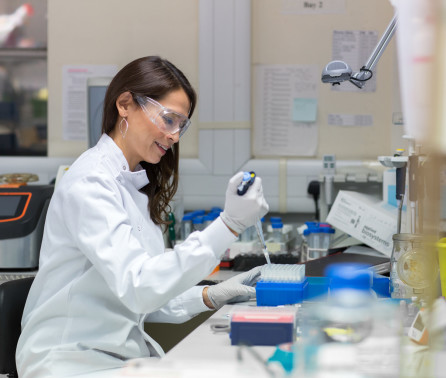BibTex format
@article{Rodriguez:2020:10.1038/s41598-020-64612-1,
author = {Rodriguez, Manzano J and Moser, N and Malpartida, Cardenas K and Moniri, A and Fisarova, L and Pennisi, I and Boonyasiri, A and Jauneikaite, E and Abdolrasouli, A and Otter, J and Bolt, F and Davies, F and Didelot, X and Holmes, A and Georgiou, P},
doi = {10.1038/s41598-020-64612-1},
journal = {Scientific Reports},
title = {Rapid detection of mobilized colistin resistance using a nucleic acid based lab-on-a-chip diagnostic system},
url = {http://dx.doi.org/10.1038/s41598-020-64612-1},
volume = {10},
year = {2020}
}
RIS format (EndNote, RefMan)
TY - JOUR
AB - The increasing prevalence of antimicrobial resistance is a serious threat to global public health. One of the most concerning trends is the rapid spread of Carbapenemase-Producing Organisms (CPO), where colistin has become the last-resort antibiotic treatment. The emergence of colistin resistance, including the spread of mobilized colistin resistance (mcr) genes, raises the possibility of untreatable bacterial infections and motivates the development of improved diagnostics for the detection of colistin-resistant organisms. This work demonstrates a rapid response for detecting the most recently reported mcr gene, mcr−9, using a portable and affordable lab-on-a-chip (LoC) platform, offering a promising alternative to conventional laboratory-based instruments such as real-time PCR (qPCR). The platform combines semiconductor technology, for non-optical real-time DNA sensing, with a smartphone application for data acquisition, visualization and cloud connectivity. This technology is enabled by using loop-mediated isothermal amplification (LAMP) as the chemistry for targeted DNA detection, by virtue of its high sensitivity, specificity, yield, and manageable temperature requirements. Here, we have developed the first LAMP assay for mcr−9 - showing high sensitivity (down to 100 genomic copies/reaction) and high specificity (no cross-reactivity with other mcr variants). This assay is demonstrated through supporting a hospital investigation where we analyzed nucleic acids extracted from 128 carbapenemase-producing bacteria isolated from clinical and screening samples and found that 41 carried mcr−9 (validated using whole genome sequencing). Average positive detection times were 6.58 ± 0.42 min when performing the experiments on a conventional qPCR instrument (n = 41). For validating the translation of the LAMP assay onto a LoC platform, a subset of the samples were tested (n = 20), showing average detection times o
AU - Rodriguez,Manzano J
AU - Moser,N
AU - Malpartida,Cardenas K
AU - Moniri,A
AU - Fisarova,L
AU - Pennisi,I
AU - Boonyasiri,A
AU - Jauneikaite,E
AU - Abdolrasouli,A
AU - Otter,J
AU - Bolt,F
AU - Davies,F
AU - Didelot,X
AU - Holmes,A
AU - Georgiou,P
DO - 10.1038/s41598-020-64612-1
PY - 2020///
SN - 2045-2322
TI - Rapid detection of mobilized colistin resistance using a nucleic acid based lab-on-a-chip diagnostic system
T2 - Scientific Reports
UR - http://dx.doi.org/10.1038/s41598-020-64612-1
UR - http://hdl.handle.net/10044/1/79475
VL - 10
ER -
